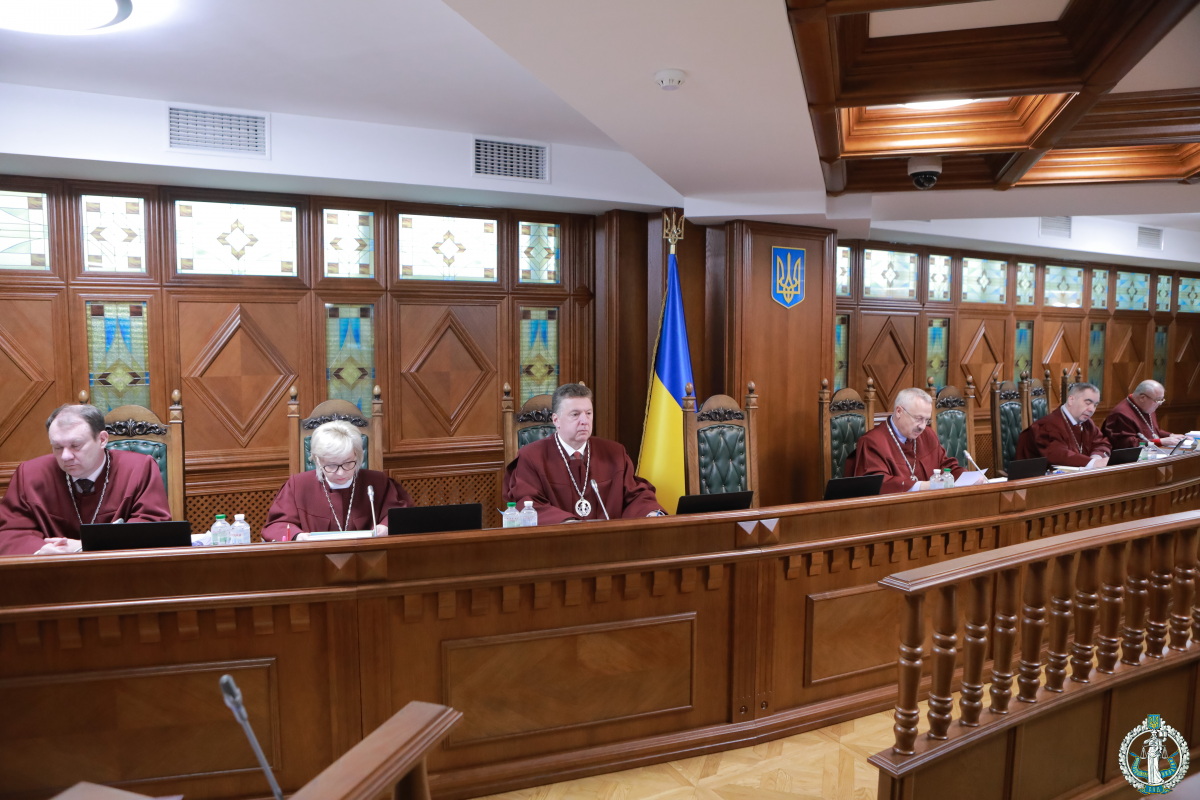 On Wednesday, April 24, 2024, the Second Senate, at the public part of the plenary session, considered the case upon the constitutional complaint of Serhii Hudyrenko regarding the compliance of Article 307.3, 309.1, 309.2 of the Criminal Procedure Code of Ukraine with the Constitution of Ukraine (hereinafter - the Code).
On Wednesday, April 24, 2024, the Second Senate, at the public part of the plenary session, considered the case upon the constitutional complaint of Serhii Hudyrenko regarding the compliance of Article 307.3, 309.1, 309.2 of the Criminal Procedure Code of Ukraine with the Constitution of Ukraine (hereinafter - the Code).
According to Article 307.3 of the Code, “the decision of the investigating judge based on the results of the review of the complaint against the decision, action or inaction of the investigator, inquirer or prosecutor cannot be appealed, except for the decision on the refusal to satisfy the complaint on the decision to close the criminal proceedings, the complaint on the refusal of the investigator, the prosecutor in granting the motion to close the criminal proceedings on the grounds specified in Article 284.1.91 of this Code, on the cancellation of the notice of suspicion and refusal to satisfy the complaint on the notice of suspicion”.
Article 309 of the Code defines the rulings of the investigating judge that can be appealed during the pre-trial investigation, in particular, the list of the rulings of the investigating judge (part one) is established, as well as that "during the pre-trial investigation, rulings of the investigating judge on refusal can also be appealed in the appeal procedure in response to a complaint against a decision to close criminal proceedings or to a decision of an investigator, a prosecutor to refuse to grant a request to close criminal proceedings on the basis of Article 284.1.8 of this Code, to cancel a notification of suspicion or to refuse to respond to a complaint regarding a notification of suspicion, return of a complaint against the decision, actions or inaction of the investigator, prosecutor, or refusal to initiate proceedings on it” (part two).
During the plenary session, the judge-rapporteur in the case, Oleh Pervomaiskyi, outlined the content of the constitutional complaint and the applicant's arguments.
The content of the constitutional complaint and the materials attached to it reveals the following.
The Pechersk Police Department of the Main Directorate of the National Police in Kyiv (hereinafter - the Department) is conducting a pre-trial investigation in a criminal proceeding registered in the Unified Register of Pre-trial Investigations.
Based on the investigating judge's decision, a search was conducted, and cash was found and seized.
The investigator of the Department recognised the money as material evidence and attached it to the criminal case file. The prosecutor of the local prosecutor's office cancelled the decision of the investigator of the Department. However, according to the applicant, the money belonging to him was not returned, contrary to Articles 16 and 169 of the Code.
In this regard, the applicant appealed to the court with a complaint about the inaction of the authorized persons of the Department, which consists in the failure to return temporarily seized property as a result of a search in criminal proceedings. The investigating judge dismissed Serhii Gudyrenko's complaint without satisfaction.
The Court of Appeal refused to initiate the proceedings, as the appeal was filed against a court decision that is not subject to appeal in accordance with the requirements of Article 307.3, 309.4 of the Code.
The applicant filed a cassation appeal, in which he requested that the rulings of the investigating judge and the court of appeal be cancelled and a new trial be initiated.
The Supreme Court refused to initiate cassation proceedings, agreeing with the decision of the court of appeal that the decision of the investigating judge was not subject to appeal.
The author of the petition argues that the contested provisions of the Code do not meet the requirements of a number of articles of the Constitution of Ukraine and violate his rights to judicial protection and property.
The judge-rapporteur also informed that in order to ensure a full and objective consideration of the case and to ensure that the Court delivers a reasoned decision, he sent inquiries to a number of bodies of state power and academic institutions with a request to express their positions on the issues raised in the constitutional complaint.
The Second Senate considered the case file in the public part of the plenary session and proceeded to the in-camera part of the plenary session.
The video recording of the plenary session is available on the official website of the Constitutional Court of Ukraine in the Section “Archive of video broadcasts of the sessions”.

